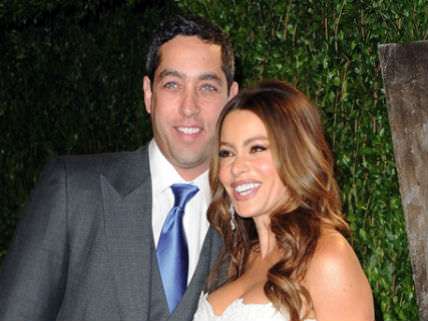Who Owns Frozen Human Embryos?: Nick Loeb vs. Sofia Vergara
A contract is a contract, but a more generous spirit might relent

As all the world knows, Florida businessman Nick Loeb and his former fiancee actress Sofia Vergara are in a dispute over what to do about two frozen embryos they produced together using IVF. The original idea was that the embryos would be implanted into a surrogate so that the couple could have two children. Before this could be accomplished Loeb and Vergana broke up. Now Loeb wants custody of the embryos and Vergara has refused.
Remarkably the New York Times has given Loeb space to plead his case in public in an op-ed today, "Our Frozen Embryos Have a Right to Live." In his op-ed Loeb writes:
In 2013, Sofía and I agreed to try to use in vitro fertilization and a surrogate to have children. We signed a form stating that any embryos created through the process could be brought to term only with both parties' consent. The form did not specify — as California law requires — what would happen if we separated. I am asking to have it voided.
Other reports characterize the contract between the two as stating that neither can take unilateral action and both sides must consent to any action taken with regard to the frozen embryos. Vergara insists that she does not want to have children with her ex-fiance and prefers to leave the embryos frozen indefinitely.
Loeb does acknowledge that the legal precendents are mostly against him:
My lawyers have identified 10 other cases in the United States in which a parent tried to have a fertilized, frozen embryo taken to term against the wishes of an opposing parent. In eight of those cases, the parent seeking custody lost. In the other two cases, one in Pennsylvania and one in Illinois, a woman was awarded custody of fertilized embryos over the man's objections. In both cases, the woman had undergone chemotherapy treatment and the embryos were her last chance to have a biological child; judges ruled that the woman's interest in becoming a parent outweighed the man's interest in not becoming a parent. In the Illinois case (now on appeal), the judge found that the form the couple signed was not the binding contract, and instead enforced a verbal promise the man made to help the woman have children.
Loeb says that he would bear all costs in trying to bring the two embryos to term and relieve Vergara of all parental responsibility. Nevertheless, people should not be compelled to reproduce. While it would certainly be a generous act if Vergara were to relent, a contract is a contract.


Show Comments (29)